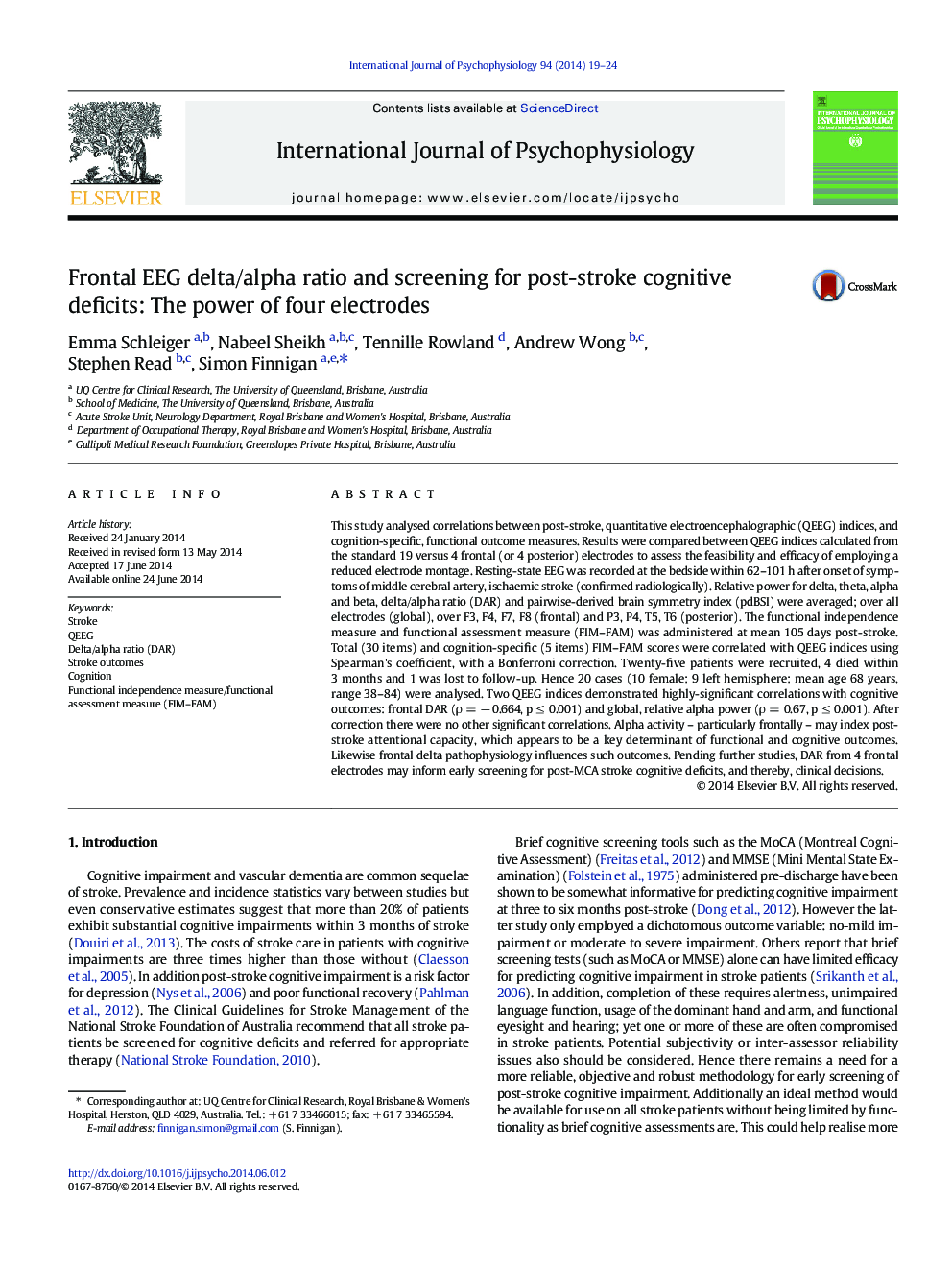| کد مقاله | کد نشریه | سال انتشار | مقاله انگلیسی | نسخه تمام متن |
|---|---|---|---|---|
| 929594 | 1474414 | 2014 | 6 صفحه PDF | دانلود رایگان |

• Post-stroke cognitive deficits are common but screening for these is challenging.
• We compare early post-stroke QEEG (global/regional indices) to cognitive outcomes.
• Global relative alpha power was significantly correlated with cognitive outcomes.
• Frontal delta-alpha power ratio was significantly correlated with cognitive outcomes.
• DAR from 4 frontal electrodes may inform screening for post-stroke cognitive deficits.
This study analysed correlations between post-stroke, quantitative electroencephalographic (QEEG) indices, and cognition-specific, functional outcome measures. Results were compared between QEEG indices calculated from the standard 19 versus 4 frontal (or 4 posterior) electrodes to assess the feasibility and efficacy of employing a reduced electrode montage. Resting-state EEG was recorded at the bedside within 62–101 h after onset of symptoms of middle cerebral artery, ischaemic stroke (confirmed radiologically). Relative power for delta, theta, alpha and beta, delta/alpha ratio (DAR) and pairwise-derived brain symmetry index (pdBSI) were averaged; over all electrodes (global), over F3, F4, F7, F8 (frontal) and P3, P4, T5, T6 (posterior). The functional independence measure and functional assessment measure (FIM–FAM) was administered at mean 105 days post-stroke. Total (30 items) and cognition-specific (5 items) FIM–FAM scores were correlated with QEEG indices using Spearman's coefficient, with a Bonferroni correction. Twenty-five patients were recruited, 4 died within 3 months and 1 was lost to follow-up. Hence 20 cases (10 female; 9 left hemisphere; mean age 68 years, range 38–84) were analysed. Two QEEG indices demonstrated highly-significant correlations with cognitive outcomes: frontal DAR (ρ = − 0.664, p ≤ 0.001) and global, relative alpha power (ρ = 0.67, p ≤ 0.001). After correction there were no other significant correlations. Alpha activity – particularly frontally – may index post-stroke attentional capacity, which appears to be a key determinant of functional and cognitive outcomes. Likewise frontal delta pathophysiology influences such outcomes. Pending further studies, DAR from 4 frontal electrodes may inform early screening for post-MCA stroke cognitive deficits, and thereby, clinical decisions.
Journal: International Journal of Psychophysiology - Volume 94, Issue 1, October 2014, Pages 19–24